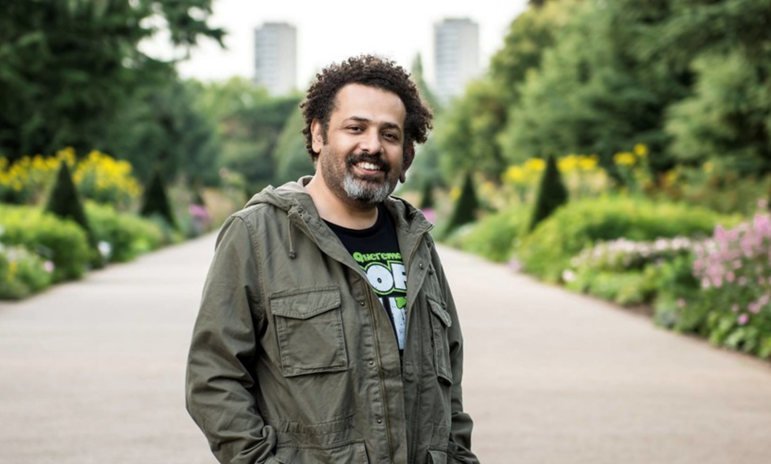Our impact in Middle East and North Africa
Dareen Tatour, Palestinian Poet
"I believe that what you have provided – support and letters from members, support and follow-up with my case, visits, continuing to highlight cases like mine - is one of the world’s most important things you can do. They help people who are subjected to harassment or intellectual persecution and alleviate their suffering." - Palestinian poet Dareen Tatour.
Wael Abbas, Egyptian writer and blogger.
In the Middle East and North Africa, States continue to forbid certain forms of expression, in particular criticism of religion and political authorities as well as writing about sexuality. Governments particularly continue to block or reduce internet services, mainly in response to protests or at the time of political events such as elections. In July 2018, the internet disruption by the National Security Council has prevented Iraqi journalists and activists from reporting the news of peaceful protests against the Iraqi government to the rest of the world. My.Kali a digital magazine promoting LGBTQI rights in Jordan, continuously blocked since July 2017 by the Jordanian Audio-visual Commission, is just one of the examples of governments preventing and criminalising writings and publications dealing with sexual orientation and sexuality.
The impact of our solidarity work
2019
PEN welcomed the release of Egyptian writer Ibrahim al-Husseini in February. The writer was arrested in his home in December 2018, charged with inciting a demonstration.
Egyptian blogger Alaa Abd Fattah and writer Hesham Gaafar were conditionally released from prison in April, after serving several years behind bars for writings critical of the Egyptian authorities and peaceful activism.
2018
PEN International campaigned for the release of Egyptian writer and blogger Wael Abbas for Day of the Imprisoned Writer, and acclaimed Afghan-American author Khaled Hosseini wrote him an open letter of solidarity. Abbas was released the following month, after seven months of detention.
Palestinian poet Dareen Tatour was released from prison in September after having served five months in prison, convicted of incitement to violence and support for terror organisations. PEN International has supported Tatour for several years and considers that she was targeted for peacefully exercising her right to free expression through poetry and activism.
Civil Society Programme impact
Kurdish PEN has been holding creative writing workshops for young people and women in five Yezidie Internally Displaced People (IDP) camps across Kurdistan Region in Iraq, with the aim of amplifying their voices to fight stigmas and stereotypes associated with Yezidie culture, and build understanding and empathy to enhance peace and togetherness within the society.
PEN Lebanon has run theatre workshops and held open readings, bringing displaced Syrian and Palestinian writers and their literature into the local Lebanese community around Beirut in order to build cohesion, dialogue and networks across cultures.


